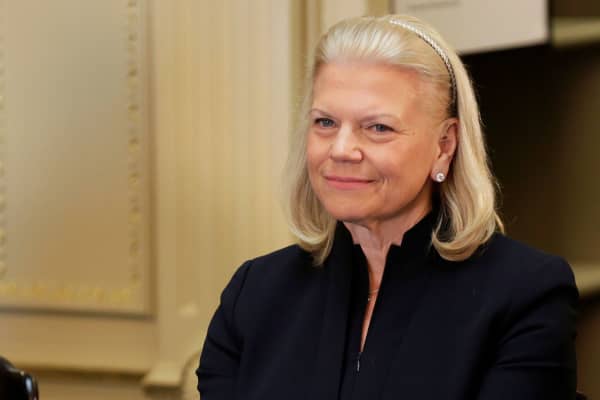
In the male-dominated world of cryptocurrency, IBM is going against the grain. The company’s 1,500 member blockchain team is led by Bridget van Kralingen, senior vice president of global industries, platforms and blockchain. Meanwhile, the actual blockchain development was led by IBM Fellow Donna Dillenberger.
With the tremendous surge in bitcoin’s popularity over the last year, blockchain, which is the platform behind bitcoin and other cryptocurrencies, has received renewed interest among large corporations and smaller entrepreneurs looking to cash in on the digital gold rush. IBM is one of a long list of companies that have now built their own blockchain platform.
However, the company’s predominantly female leadership lies in stark contrast to other blockchain start-ups, which are overwhelmingly run by men. It also makes the company an anomaly within a fintech industry that remains heavily male-dominated. However, Kralingen, who joined the company in 2004, notes that promoting women to leadership positions isn’t a new trend at IBM. The company’s CEO, Ginni Rometty, is the most visible example.
Dillenberger was tapped as the company’s lead blockchain engineer when she became an IBM Fellow in 2015, which is the highest technical honor at the company. Out of 370,000 IBM employees, she is currently one of just 99 Fellows. In IBM’s nearly 107-year history, there have only been 289 Fellows, five of whom are Nobel Prize winners.
An analysis of the top 50 blockchain companies found that just 16 percent are founded by and/or led by women.
The reasons behind the gender disparity are varied, but women overwhelmingly point to a “blockchain bro” culture that caters exclusively to men. In January, the North American Bitcoin Conference featured 84 male speakers and three women, while the post-conference networking party was held at a Miami strip club. And this isn’t a one-off, according to Tavonia Evans, creator of a token coin built on ethereum blockchain technology called $Guap.
Evans tells CNBC Make It that this blockchain bro culture further alienates women in tech and admits that she’s skipped blockchain conferences due to a lack of female representation
“There’s a level of intimidation in getting into this space,” says Evans. “Women like myself have to work harder to create an entryway to get in.”
Why diverse leadership is so crucial
Since blockchain is still a relatively new technology, it gives businesses the opportunity to diversify their rankings from the beginning. Frans Johansson, diversity expert and author of the “Medici Effect,” notes that this is a crucial step if a company wants to be innovative.
“You’re at a competitive disadvantage if you’re not diverse,” he tells CNBC Make It. “So those that push for it early on will succeed much more quickly.” IBM has had a long history of innovation, he says, due to its longstanding diversity efforts that stem back to the ’90s. “Diverse teams can make things happen faster and with less resources,” adds Johansson.
Read more on CNBC.com.







